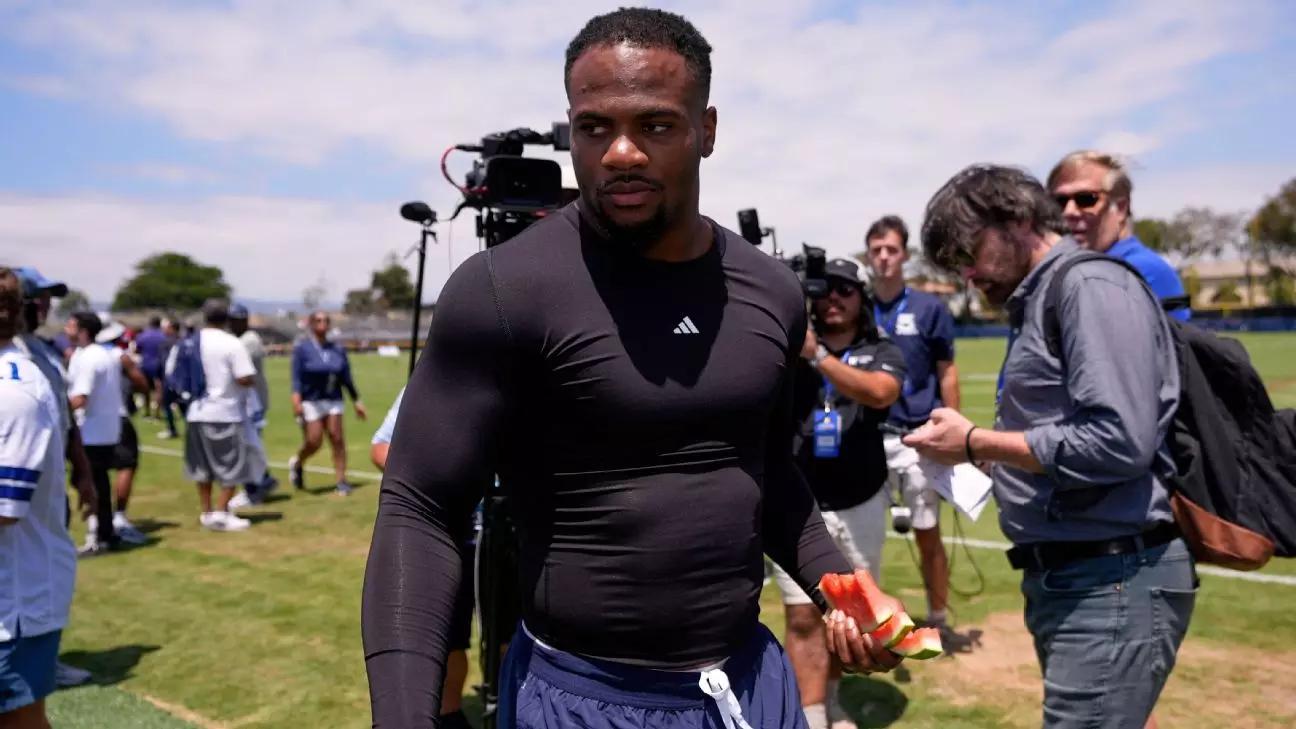In professional sports, especially within organizations like the NFL, contract negotiations are more than mere financial arrangements; they are strategic battles that reflect the balance of power between players and management. When Dallas Cowboys owner Jerry Jones publicly discusses his intense efforts to secure a lucrative deal for Micah Parsons, it reveals a broader philosophy about valuation, loyalty, and the taming of superstar talent. The fierce tone and uncompromising stance highlight how critical these negotiations are—not just for individual players, but for the franchise’s future stability and competitive edge.
Jones asserts that the offer he’s prepared would have made Parsons the highest-paid non-quarterback in NFL history, emphasizing the Cowboys’ willingness to heavily invest in their star linebacker. This statement underscores a core debate in sports management: How much should a team prioritize guaranteed money in negotiations? While players often focus on their immediate financial reward, owners like Jones are more concerned with long-term contractual control and protecting their investments. The unresolved conflict points to a flawed assumption that money alone determines loyalty—a misconception that can jeopardize team chemistry and leadership cohesion.
The Role of Agents and Representation in Shaping Outcomes
A recurring theme in this saga is the apparent friction between Jerry Jones and Micah Parsons’s agent, David Mulugheta. Jones’s direct criticism, claiming that the agent dismissed negotiations rudely, exposes the often combative relationship between team management and player representatives. The agent’s role as a fiduciary for the player becomes complex when the negotiations threaten to become personal power struggles rather than genuine exchanges focused on fair value.
This tension reveals the underlying power dynamics in NFL negotiations. Agents operate as gatekeepers to their clients’ interests, but their aggressive stance can sometimes force teams into hardline positions. Jones’s assertion that “the attorney or agent works for Micah” simplifies this complex relationship—yet it glosses over the reality that agents often prioritize their fee structures and negotiations tactics over the team’s financial health. In this context, the agent’s tough negotiating style can escalate conflicts, making amicable resolution harder and prolonging negotiations that could otherwise be streamlined.
The Framing of Loyalty, Performance, and Future Risks
Jones’s comments reveal a strategic mindset: he recognizes the importance of securing Parsons’s services but also emphasizes the need for managerial authority. Comparing Parsons’s situation to Dak Prescott’s contract, Jones suggests a readiness to employ the franchise tag or wait until the player completes the current contract term—tactics that give the team leverage rather than immediate financial concessions.
This approach demonstrates a fundamental misunderstanding—or perhaps a tactical calculation—about how superstar players are motivated. Parsons’s public trade request was likely a protest not just about money but about his desire for respect, leadership influence, and assurance of a future with the Cowboys. By emphasizing a “basic contract” and framing negotiations as a matter of control, Jones risks alienating players who see their value as not just transactional but also tied to their status within the team hierarchy.
Furthermore, the potential use of the franchise tag—costly and contentious—raises questions about how teams view player loyalty and the long-term stability of relationships. Instead of fostering a culture of mutual respect, these tactics often foster mistrust, which could have ripple effects on team dynamics, especially among younger or more outspoken stars.
The Bigger Picture: Power, Loyalty, and the Real Cost of Silence
Jones’s candor exposes a belief that financial control and strategic patience are the keys to managing superstar talent. However, this perspective may underestimate the importance of psychological contract and trust. Players like Parsons are not just assets to be bought and sold; they are individuals whose careers are shaped by respect, leadership, and shared visions for the future.
While Jones claims to have ‘negotiated in fairness,’ his public remarks feed into a narrative that owners hold all the cards. This attitude can backfire, fueling frustration and possibly prompting other players to stage similar standoffs. In an era where superstar athletes command more influence and leverage than ever before, long-term success hinges on understanding that negotiations are as much about value perception as they are about dollars and years.
Ultimately, the management tactics deployed in this negotiation reflect a wider tendency in professional sports to prioritize immediate financial control over fostering loyalty and mutual respect. If teams continue to overlook the human element in favor of tactical dominance, they might win battles but risk losing the trust and inspiration essential for sustained success. The true power lies not in the checkbooks alone but in the ability to align interests and cultivate genuine respect—a lesson that Jones’s approach, in its current form, may still need to learn.


Leave a Reply